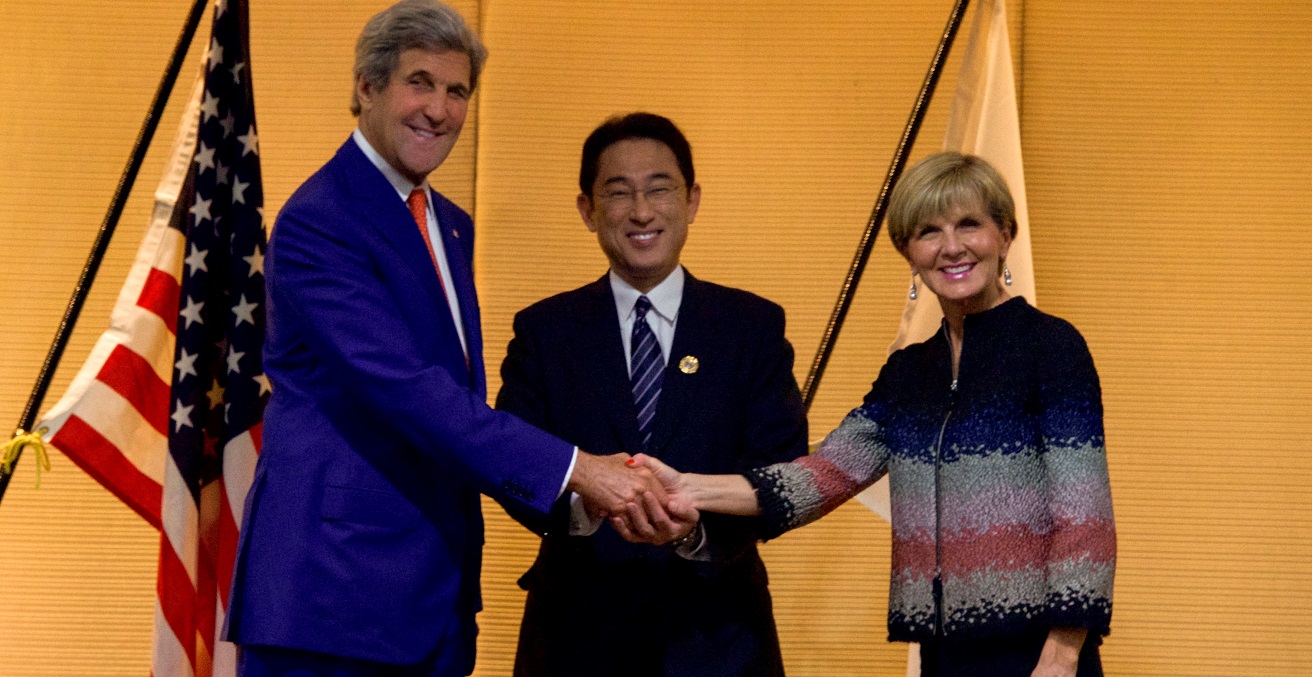Potential for Stronger Japan-Australia Security Ties

By focusing on a robust defence partnership, Australia and Japan can find strong security options beyond the US and China.
In wake of escalating tensions in the Asia-Pacific, security was a major theme of the Japan Update 2017 at the Australian National University on 6 September. Increasing threats and ongoing structural shifts have led to growing uncertainty, prompting a reassessment of security ties between neighbours in the region. This has been the case for Japan and Australia’s security relationship, which has had much less attention paid to it than other bilateral partnerships in the Asia-Pacific.
For the most part, the assessment remains unchanged: Australia and Japan continue to share a common set of values towards the upholding of a rules-based international order and the promotion of peace, prosperity and stability. At this year’s Japan Update, Professor Fumiaki Kubo from the University of Tokyo put forward the concept of imagining a world where Australia and Japan did not have such a relationship. He emphasised that the partnership is an equally important component in each country’s pursuit for global influence.
Considering US President Donald Trump’s departure from Barack Obama’s re-balancing policy in East Asia, it is little wonder that the focus has returned to fostering closer security ties between Japan and Australia. As two middle powers subject to the larger influences of China and the United States, there is common ground and the capacity for mutual understanding. Closer Australia-Japan security ties may help limit the degree of risk associated with each nation becoming overly reliant on the United States; however, for the present and foreseeable future, the two are likely remain dependent on Washington’s support.
The trilateral relationship with the US raises an important question about Japan’s and Australia’s security relationship: Do the values shared between the two nations align with their own national interests? In the context of the US presence in the region, both Japan and Australia have ulterior motives for a stronger alliance with each other and these interests could potentially be disrupted.
This was exemplified by the failed submarine deal between Japan and Australia under Tony Abbott’s government. For the Japanese, the deal with Australia was another step towards Prime Minister Shinzo Abe’s push to have Japan’s pacifist constitution clauses amended, allowing for an increase in militarisation and further distancing itself militarily from the United States. For Australia, the deal would fulfil its obligations in contributing towards the US efforts in the Asia-Pacific by delivering new military infrastructure.
When Australia chose a French contractor instead, the Japanese were left red-faced. Prime Minister Abe had spent months campaigning on the issue and had made unshakable promises to the Japanese public that the deal with Australian would go ahead. Ultimately, Japan’s misjudgement of Australia’s commitment damaged the Japanese government’s domestic interests.
By the same token, it may have been Australia’s domestic interests that contributed to the decision not to go ahead with the Japanese submarine deal. Anxiety about Japan re-entering the weapons market and Australia potentially becoming implicated in one of its disputes—in particular the ongoing territorial hostilities with China—is likely to have been a factor in the outcome.
Separately, China made no attempt to avoid expressing its disapproval of the submarine-related negotiations between Australia and Japan. Eventually, the argument may have been made that Australia’s own interests with China were simply far too important to jeopardise.
Although the submarine deal was put forward as an example of failure of security cooperation between Japan and Australia, there was still a high level of optimism expressed at the Japan Update 2017. If managed carefully, the Japan-Australia security relationship can provide a third platform within the Asia-Pacific region, beyond the binary framework of either the US or China.
Nicholas Taylor is currently an intern at the AIIA National Office. He completed a Bachelor of Arts at Murdoch University.
This article is published under a Creative Commons Licence and may be republished with attribution.





